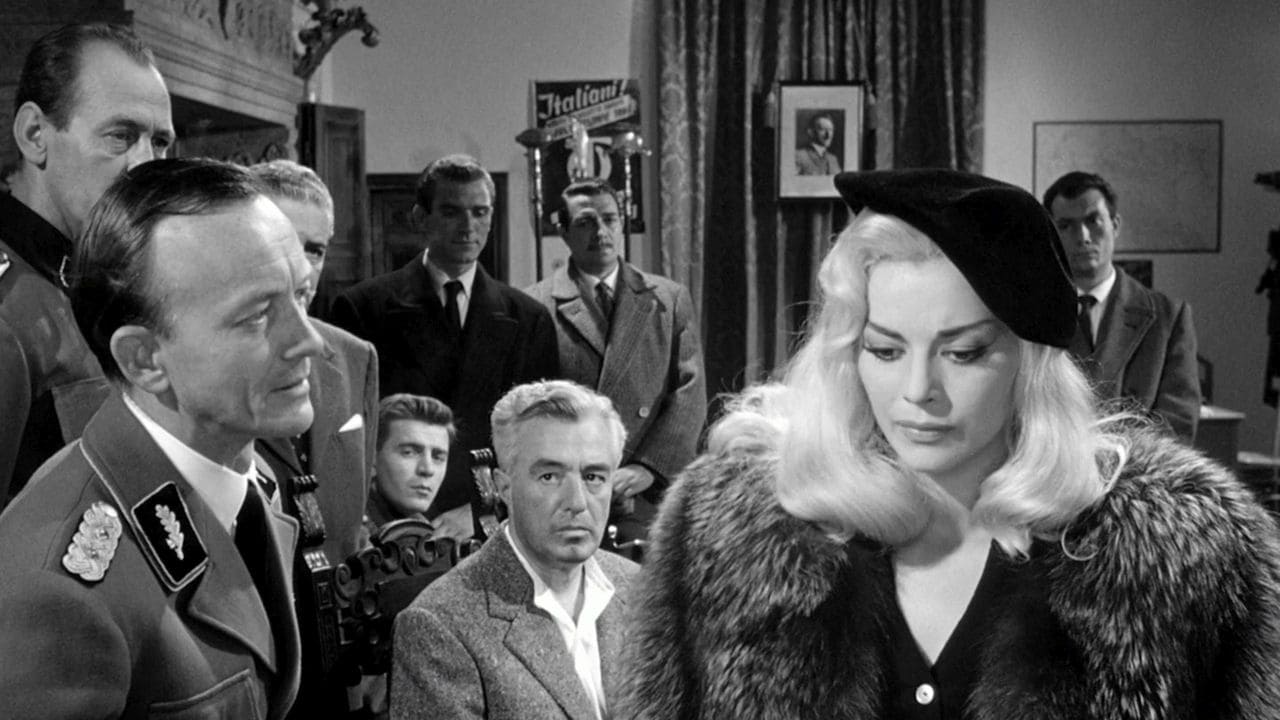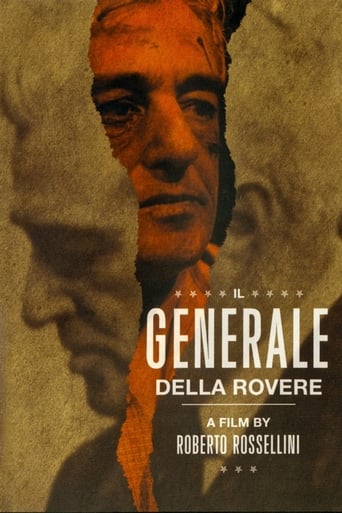Karry
Best movie of this year hands down!
Smartorhypo
Highly Overrated But Still Good
Patience Watson
One of those movie experiences that is so good it makes you realize you've been grading everything else on a curve.
Calum Hutton
It's a good bad... and worth a popcorn matinée. While it's easy to lament what could have been...
oOgiandujaOo_and_Eddy_Merckx
The story of the film concerns "Colonelo" Bertone a self-appointed community intercessor and thief in World War II Italy, passing on bribes from families to the Germans in order to help their sons (or gambling away the bribes and eating their food parcels). It's definitely a film of two halves, the first half of the movie to me feeling decidedly Pasolinian. Bertone, though undoubtedly a scoundrel does his best to keep people happy, is a character that spreads a certain amount of charm in the world. For some people who have never known love or had anyone to look up to, he provides a show, his charisma is like ambrosia. Having been brought up with Protestant vales it has been a revelation to me in life how people value charm as most precious, a Veblen good, more prized when it is most demanding, how a charming person is valued above all others even when they live in a moral vacuum.The second half of the movie is, in structure, a more conventional prison movie where Bertone, working for the Germans in order to save his skin, becomes an impostor pretending to be Generale della Rovere. Whilst pretending to be the general he begins to assume many of the general's characteristics. This part of the film is very patriotic, and contains a beautiful fresco of Italian cities on the prison wall. The ideology of this part of the movie is all about recognising the efforts of the largely Communist, Partito d'Azione and Socialist partisan resistance, bodies who were largely excluded from the post-fascist Italian government, which was dominated by the Christian Democrats, who many felt to have been tainted by association with fascism.Pontecorvo's movie Kapò was released contemporaneously, and features a similarly caricatured version of the Teutonic gaoler and slightly ebullient view of World War II, that would become refined in future decades. That said, Il Generale della Rovere, is undoubtedly a masterpiece.
rossangela
I fully agree with all the glowing accolades of other commenters and totally disagree with the one commenter who thought it was "uneven." This is one of the greatest films ever made, partly because the humanity of the characters and the choices they must make are really what life is all about. If only present-day film makers (producers, directors, writers, etc) would concentrate their efforts towards making films of this caliber, what a much better world this would be. Instead, desiring profits over quality, they go for the lowest common denominator, and continue to make films bereft of the poetry of life, and full of gore, violence, guns, explosions, terror, and all sorts of ugliness and gratuitous noise. They think "this is what the public wants." How wrong they are. One interesting aside: I believe that Rosselini wasn't really as satisfied with this film as much as audiences are. If that rumor is true, it can only be an example of an artist not realizing the impact and importance of a particular work they have created.
Pierre-Paris2
Roberto Rossellini, as a filmmaker, cannot be compared to anyone else. Not because of any camera technique but because his mind, to tell a story, took shortcuts through truly dangerous territories. The nervous center of the Italian human nature is dissected with fierceness, compassion and even a touch of admiration. Redemption coming in the most unexpected form as a last, final test. Who am I, really? Could I at the last moment of my life become the man I always wanted to be? Beautiful, poignant, terrifying. Vittorio De Sica gives one the best performances of his eclectic and extraordinary career. The traveling of his thoughts seem to come out of the screen with the same intensity as his real smallness, his fear, his painful self awareness. Truth, with all is uncomfortable connotations 24 frames a second.
Gerald A. DeLuca
Winner of many top international festival prizes, this was one of Roberto Rossellini's most widely seen films in America after OPEN CITY and PAISAN. It is a superbly written, directed, and acted drama about a petty conniver, Bertone, alias Grimaldi, played by Vittorio De Sica in what is possibly his greatest acting role. He is not above loving people and swindling them at the same time. He does this to survive the hard times of Mussolini's Salo' Republic period. The film is set in Genoa after the Badoglio armistice has been signed with the Allies in the south. Bertone tries to help Italians who have relatives imprisoned by the Nazis. Sometimes he can help; other times he cannot but always takes their money. When his game is finally up, he is imprisoned but offered an opportunity by the Germans. He is to impersonate a revered partisan leader already killed by the Nazis in order to furnish them information on another partisan leader in the anti-fascist underground. It is at this point that Bertone gradually undergoes a transformation, choosing patriotism over capitulation. The con-man becomes a hero. Other standout performances here are given by Sandra Milo as a prostitute, Hannes Messemer as the Nazi commandant and Vittorio Caprioli as an inmate barber.

